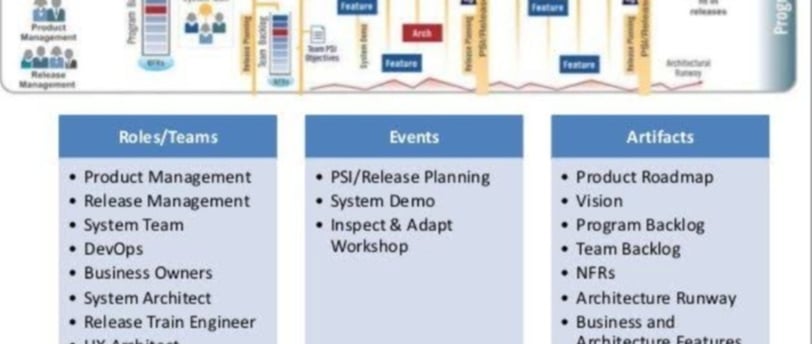Interview Questions for Agile Coach and Enterprise Agile Coach Roles
Interview round wise insights
Roopesh Yogiputr Mathur CTO AgileDevOps Smart Management Consultancy
1/22/20243 min read


First Round of Interview Questions
1. What is your experience with Agile methodologies?
Answer: I have been working with Agile methodologies for X years. I have experience in implementing various frameworks such as Scrum, Kanban, and Lean Agile practices.
2. Can you provide an example of a successful Agile transformation you have led?
Answer: In my previous role as an Agile Coach, I led a successful Agile transformation at XYZ Company. We implemented the Scaled Agile Framework (SAFe) and helped the organization improve collaboration, increase productivity, and deliver value to customers more efficiently.
3. How do you handle resistance to change during an Agile transformation?
Answer: During an Agile transformation, resistance to change is common. I believe in open communication and involving all stakeholders in the process. I address resistance by explaining the benefits of Agile, providing training and coaching, and addressing concerns on an individual basis.
4. How do you measure the success of an Agile team?
Answer: I believe in using key performance indicators (KPIs) to measure the success of Agile teams. Some common metrics include velocity, lead time, customer satisfaction, and team morale. These metrics provide insights into the team's performance and help identify areas for improvement.
5. Have you worked with any specific Agile frameworks, such as SAFe, LeSS, Spotify, or Daad?
Answer: Yes, I have experience working with various Agile frameworks. For example, I have implemented SAFe in a large organization to enable alignment and collaboration across multiple teams. I have also used LeSS to scale Agile practices in a distributed team environment.
Second Round of Interview Questions with Technical Agile Scaled Agile Leadership Teams
1. How do you ensure alignment and collaboration between multiple Agile teams?
Answer: I believe in creating a strong Agile community of practice where teams can share knowledge and best practices. I also facilitate regular cross-team meetings, such as Scrum of Scrums, to ensure alignment and address any dependencies or impediments.
2. Can you provide an example of a complex problem you have solved using Agile principles?
Answer: In a previous project, we faced a challenge of integrating multiple legacy systems into a new platform. By using Agile principles such as iterative development, continuous feedback, and close collaboration with stakeholders, we successfully delivered the project on time and within budget.
3. How do you coach and mentor Agile teams to continuously improve?
Answer: I believe in the power of continuous improvement. I encourage Agile teams to conduct retrospectives to reflect on their work and identify areas for improvement. I also provide coaching and mentoring to help teams adopt new practices and overcome challenges.
4. Have you implemented Agile practices in a regulated industry?
Answer: Yes, I have experience implementing Agile practices in regulated industries such as healthcare and finance. I understand the importance of compliance and have successfully adapted Agile methodologies to meet regulatory requirements.
HR Round
1. How do you handle conflicts within Agile teams?
Answer: Conflict is a natural part of any team dynamic. I believe in addressing conflicts early and openly. I facilitate team discussions to identify the root cause of conflicts and work towards finding a resolution that benefits the team and the project.
2. How do you stay updated with the latest trends and practices in Agile?
Answer: I am a lifelong learner and actively participate in Agile communities, attend conferences, and read books and articles on Agile methodologies. I also encourage my teams to share their learnings and stay updated with the latest trends.
3. How do you handle tight deadlines and changing priorities in Agile projects?
Answer: Agile projects are designed to be flexible and adaptable. I work closely with stakeholders to prioritize deliverables and manage expectations. I also encourage Agile teams to embrace change and focus on delivering value incrementally.
4. How do you measure the impact of Agile transformations on the organization?
Answer: Measuring the impact of Agile transformations is crucial. I believe in conducting regular assessments and collecting feedback from stakeholders to evaluate the effectiveness of the transformation. This helps identify areas of improvement and ensure that the organization is reaping the benefits of Agile practices.
In conclusion, these interview questions cover a wide range of topics related to Agile methodologies, frameworks, leadership, and HR aspects. By asking these questions, interviewers can assess the candidate's experience, problem-solving skills, ability to handle conflicts, and their overall fit for the Agile Coach or Enterprise Agile Coach role.